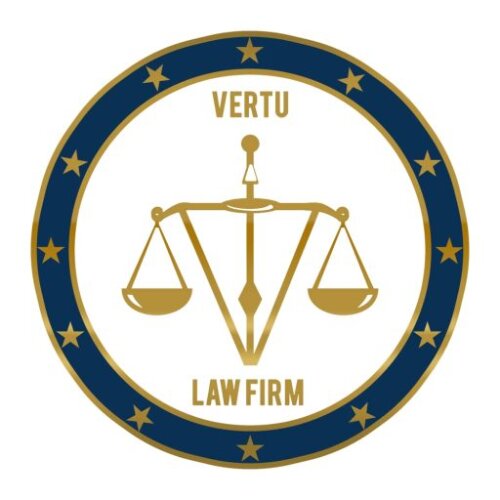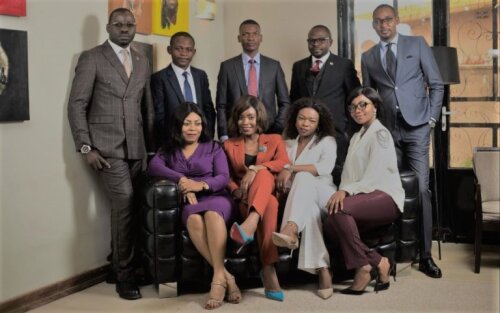Best Franchising Lawyers in Lubumbashi
Share your needs with us, get contacted by law firms.
Free. Takes 2 min.
List of the best lawyers in Lubumbashi, DR Congo
About Franchising Law in Lubumbashi, DR Congo
In Lubumbashi, the Democratic Republic of Congo (DRC), franchising is a budding practice, admired for its potential to foster entrepreneurial growth and economic development. However, the DRC does not have any specific legislation that governs franchising. Instead, franchising falls under a multitude of laws including contract law, intellectual property law, competition law, and agency law.
Why You May Need a Lawyer
Engaging in franchising, either as a franchisor or a franchisee, involves navigating a myriad of complex laws. A lawyer can help you understand these laws, draft and review contracts, enforce your rights, provide guidance on business operations, protect your intellectual property, and manage potential litigation. Particularly in Lubumbashi where franchising is in its nascent stage, legal advice can be critical in ensuring regulatory compliance, promoting fair business conduct, and mitigating legal risks.
Local Laws Overview
While there are no specific franchising laws in the DRC, a number of legal domains are relevant. These include:
Contract Law: This dictates the forming, interpretation, and execution of franchise agreements.
Intellectual Property Law: This safeguards franchisors' trade names, logos, trademarks, patents, and copyrights from misuse.
Competition Law: While this is not well-developed in the DRC, it prohibits business practices that substantively reduce market competition.
Agency Law: This governs the relationship between franchisors and franchisees, particularly concerning the appointment and obligations of franchisees as agents.
Frequently Asked Questions
What is franchising in simple terms?
Franchising is a business arrangement in which an established business (franchisor) gives another business (franchisee) the right to operate under its trade name in exchange for fees and a share of the profits.
Do I need a lawyer to participate in franchising?
While it's not mandatory, having a lawyer can be immensely helpful. Lawyers can clarify your legal obligations, ensure your interests are protected, help negotiate better contract terms, and guide you through any legal disputes.
Can a franchise agreement be terminated?
Yes, a franchise agreement can be terminated in accordance with the terms stipulated in the agreement or based on breach of contract grounds. A lawyer can guide you through this process.
How do I protect my trade name and logo?
You can protect these by registering them as trademarks under the intellectual property laws of the DRC.
Can I own multiple franchises?
Yes, it's possible to own multiple franchises, provided that your contract doesn't restrict it and you can meet the requirements of every franchise involved.
Do local laws favor the franchisor or franchisee?
The DRC's laws aim at fairness and balance in franchising relationships. However, how these laws are interpreted can vary, necessitating legal advice.
What are the risks of franchising in Lubumbashi?
Risks include contractual disputes, potential infringement of intellectual property, non-compliance with local laws, and business-related risks such as market saturation.
Do I need to register my franchise in Lubumbashi?
While there's no specific law governing franchising in the DRC, other laws may require you to register certain aspects of your franchise. Consult with a lawyer for an accurate understanding.
Is there protection against unfair competition in franchising?
While there's no developed competition law in the DRC, there are certain provisions that can be invoked to protect against unfair competition in franchising.
How can I resolve a legal dispute with my franchisor or franchisee?
Typically, parties first attempt resolution through negotiation or mediation. If these fail, arbitration or litigation can be pursued, depending on the terms of your contract.
Additional Resources
You can consult the DR Congo Bar Association, Intellectual Property Office, and local business bureaus for further information. Remember, the specifics of franchising laws are complex, so seeking legal advice is recommended.
Next Steps
If you need legal assistance in franchising, identify a lawyer with expertise in business law, particularly in franchising and related areas. Prepare a detailed account of your situation, gather all relevant documents, and arrange for a consultation. The more information you can provide, the better your lawyer will be positioned to assist you.
Lawzana helps you find the best lawyers and law firms in Lubumbashi through a curated and pre-screened list of qualified legal professionals. Our platform offers rankings and detailed profiles of attorneys and law firms, allowing you to compare based on practice areas, including Franchising, experience, and client feedback.
Each profile includes a description of the firm's areas of practice, client reviews, team members and partners, year of establishment, spoken languages, office locations, contact information, social media presence, and any published articles or resources. Most firms on our platform speak English and are experienced in both local and international legal matters.
Get a quote from top-rated law firms in Lubumbashi, DR Congo — quickly, securely, and without unnecessary hassle.
Disclaimer:
The information provided on this page is for general informational purposes only and does not constitute legal advice. While we strive to ensure the accuracy and relevance of the content, legal information may change over time, and interpretations of the law can vary. You should always consult with a qualified legal professional for advice specific to your situation.
We disclaim all liability for actions taken or not taken based on the content of this page. If you believe any information is incorrect or outdated, please contact us, and we will review and update it where appropriate.











